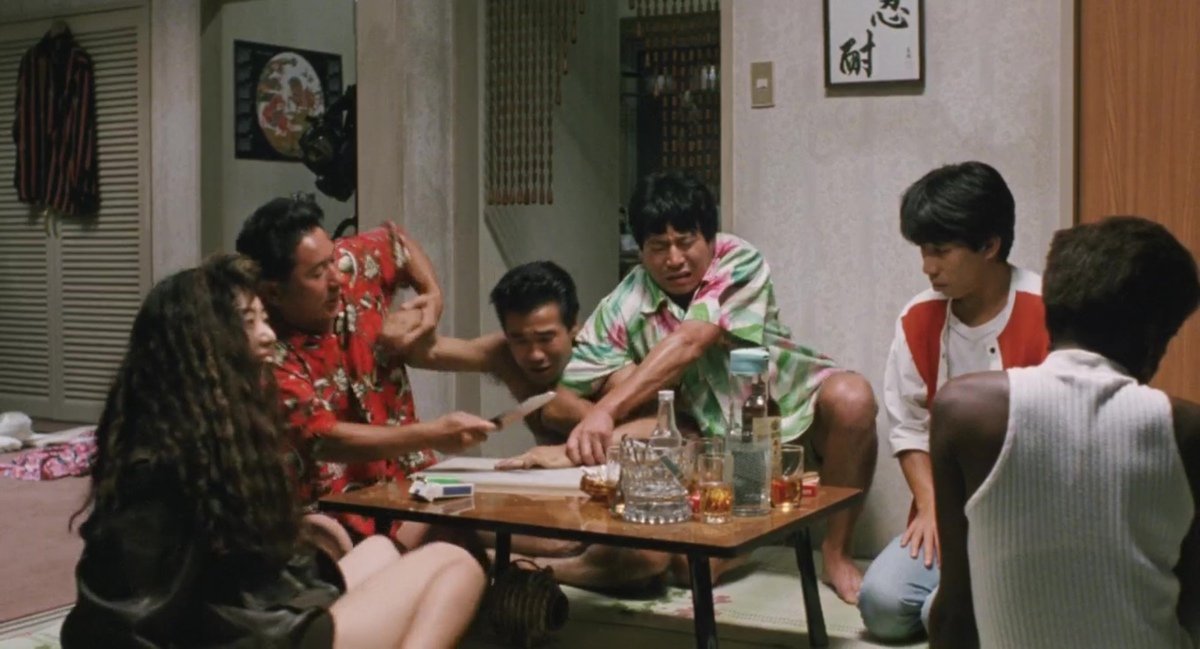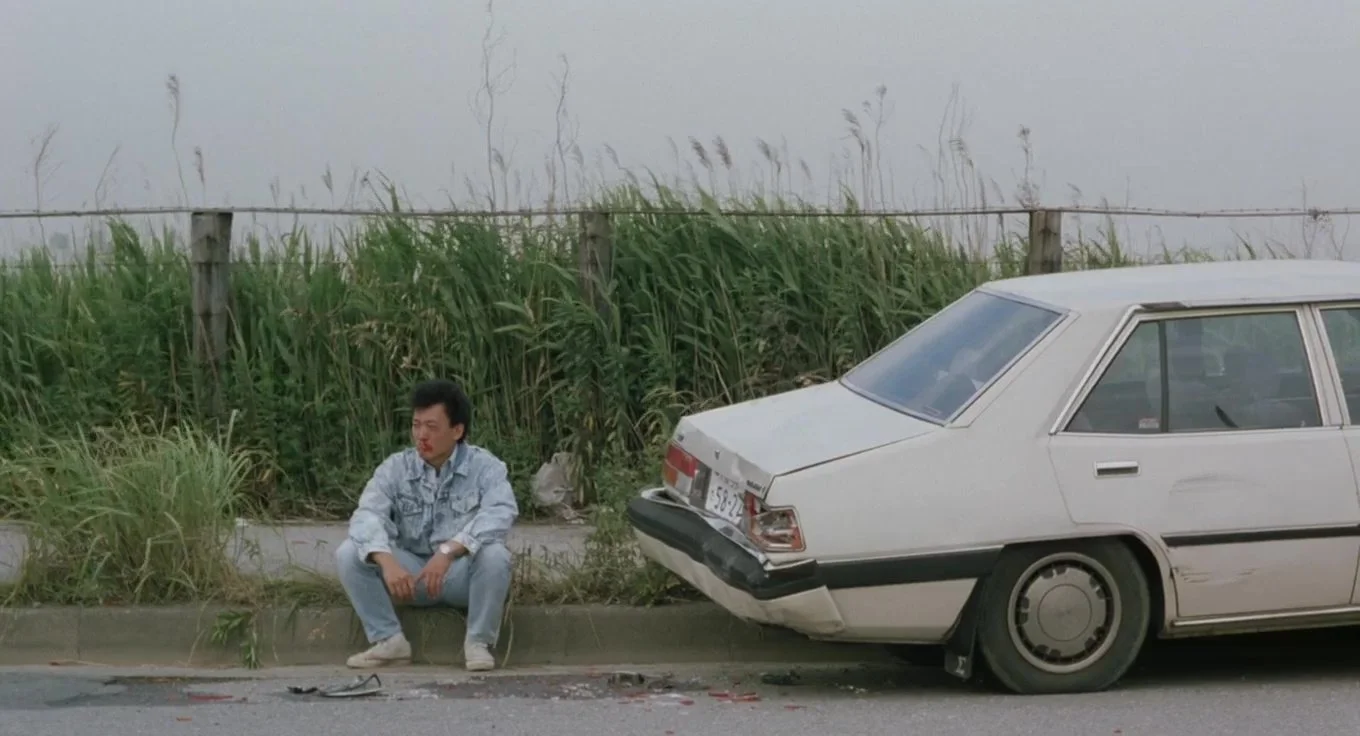Baseball & Yakuza - Boiling Point by Takeshi Kitano

Takeshi Kitano is a master of all kinds of yakuza movies.
There is no denying it. From his directorial debut 1989 flick "Violent Cop" to his most recent "Outrage" legacy [2010-2017], the films he presents us are full of brutality and violence. However, they aren't just that. Sadness, love, despair, loneliness, there are many more factors that make a Takeshi movie Takeshi. While his movies like the Outrage series are easier to understand, he is also a mastermind when it comes to more open-ended conceptual movies. His sophomore 1990 title "Boiling Point" [Japan: 3-4x 10 Gatsu] is one of these.
The film follows Masaki [Yūrei Yanagi], a sandlot baseball player who works at a gasoline stand. The film starts off with the cast playing baseball, and Masaki strikes out looking despite being the pinch hitter. Masaki, who always seems a bit out of it, one day is working at his gasoline stand like usual when a member of the Otomo-gumi yakuza asks to get his car washed. Being the clumsy person he is, Masaki angers the yakuza, and gets punched, and unexpectedly punches back. This leads to dispute between the gas station and the yakuza, and Masaki heads to Okinawa with a friend to purchase a gun to get revenge.
After they meet Uehara [Beat Takeshi], things start to take turns. Violence, revenge, sex, guns, things start to escalate their original plans of simply getting a gun. In fact, their whole baseball team gets involved into the chaos, leading to one of Takeshi's most open-ended, mysterious endings to this day.
While Takeshi movies might have a strong connection with music & Joe Hisaishi, this film is completely sondtrack-less, and had much less dialogue than usual as well.
One of the key scenes involves a large explosion, in which the crew used a vacant area at night to film, ended up creating a much larger explosion than expected, which was filmed by civilians around the area and even aired on television. This led to Takeshi apologizing to the citizens around the area, but they ended up using the scene anyway in the end.



![Kikujiros Summer By Takeshi Kitano [1999]](https://images.squarespace-cdn.com/content/v1/57825361440243db4a4b7830/1639476084448-CV86EV9W0ZLAQZ3GZC9M/170928981_121083863340401_6216938534134466890_n.jpg)


